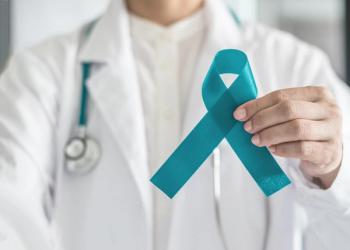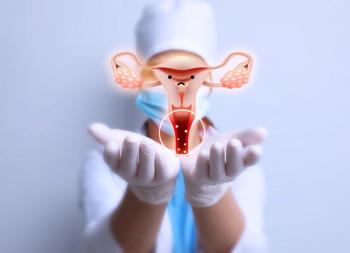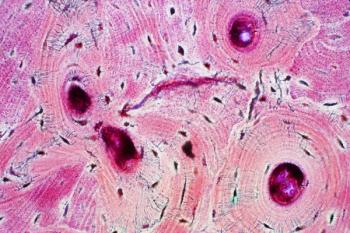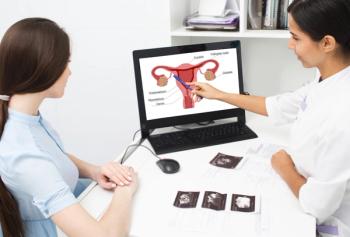
A study comparing the symptoms of female sexual arousal disorder in premenopausal and postmenopausal women has been published by Daré Bioscience.

A study comparing the symptoms of female sexual arousal disorder in premenopausal and postmenopausal women has been published by Daré Bioscience.

Expanding peripartum prophylaxis could be more cost-effective, but would likely lead to significant over-treatment.

Jeff Andrews, MD, FRCSC, Vice President of Medical Affairs for Integrated Diagnostic Solutions at BD, discusses the link between human papillomavirus (HPV) and cervical cancer, and how HPV self-sampling kits may increase rates of cervical cancer screening.

A multi-targeted rapid sample processing and testing system has shown efficacy for diagnosing vulvovaginal candidiasis by detecting the presence of Candida species in women.

There were several risk factors identified, including abortion, hospitalization, past surgical procedure, dental extraction, delivery in hospital, injection in hospitals, and household contact with jaundice.

In a recent study, cardiovascular disease events were seen more often in women with irregular or long or short menstrual cycles.

Medical care, lost productivity, premature deaths take a huge toll on patients, families, and the economy, according to researchers.

In a recent study, increased street view-based green space, especially tree coverage, led to decreased risks of depression in post partum women, with mediation effects observed for physical activity.

In a recent study, use of β3-adrenoceptor agonists over anticholinergic prescriptions differed based on patient race.

New data indicates that increased risk for offspring in developing different disorders is associated with maternal alopecia areata exposure, expanding the available information on alopecia and maternal autoimmunity.

In a recent study, midlife women with prediabetes before menopause transition were more likely to experience fractures in postmenopause.

In a recent study, pregnant people receiving extracorporeal membrane oxygenation experienced low mortality rates but high morbidity rates.

New data indicates the usefulness of spironolactone as an alternative to oral antibiotics for women in the UK with acne vulgaris, given increasing resistance to antibiotics due to widespread use.

In a recent study, induction of labor was found safe and beneficial in pregnant women at 39 weeks of gestation, with increased risks only seen for shoulder dystocia in nulliparous women.

Many barriers lead to low rates of use of LARCs.

Physicians debate merits of face covers as virus becomes endemic in the population.

In a recent study, mental disorders were more commonly seen in offspring of mothers diagnosed with 1 or more autoimmune diseases before or during pregnancy.

At the 2023 ACOG Annual Clinical & Scientific Meeting, Caitlin Martin, MD, discussed the concerning rise in substance use mortalities and maternal mortalities.

At the 2023 ACOG Annual Clinical & Scientific Meeting, the efficacy and satisfaction rates of pessaries in patients with prolapse symptoms were discussed.

At the 2023 ACOG Annual Clinical & Scientific Meeting, methods of providing contraception to adolescents in a post-Dobbs era were discussed.

At the 2023 ACOG Annual Clinical & Scientific Meeting, the safety and efficacy of compounded bioidentical hormone therapy for menopause were discussed.

At the 2023 ACOG Annual Clinical & Scientific Meeting, Gloria Richard-Davis MD, MBA, NCMP, FACOG, discussed the importance of using hormone therapies to treat menopause symptoms.

At the 2023 ACOG Annual Clinical & Scientific Meeting, methods of reducing disparities in vaccinations among pregnant and postpartum people were discussed.

At the 2023 ACOG Annual Clinical & Scientific Meeting, details on substance use disorder were provided, including methods of treatment and the screening process for women.

At the 2023 ACOG Annual Clinical & Scientific Meeting, the impact of social media on polycystic ovary syndrome diagnosis and treatment was discussed.

Following some improvement, excess death rate returned to 1999 levels for Black men and 2005 levels for Black women

In a recent study, patients taking curcumin to prevent bleeding patterns from contraceptive implants reported similar levels of satisfaction as those taking placebo.

To improve the gap in low-dose aspirin prophylaxis use in patients with risk of preeclampsia after recommendations, experts created a metric.

Results from the NIH RECOVER Initiative study show an 89% risk of long COVID in women with sleep apnea and 59% in men when compared with adults without the condition.

In a recent study, larger fibroid sizes and location in the lower uterine segment or cervix were associated with greater odds of post partum hemorrhage requiring packed red blood cell transfusion.